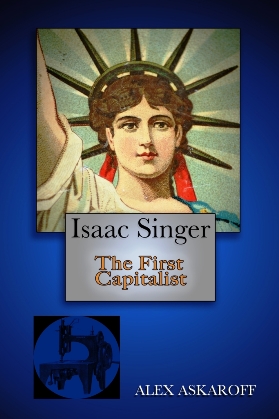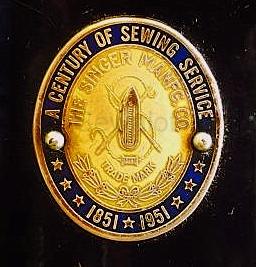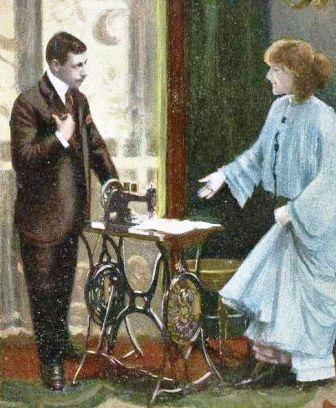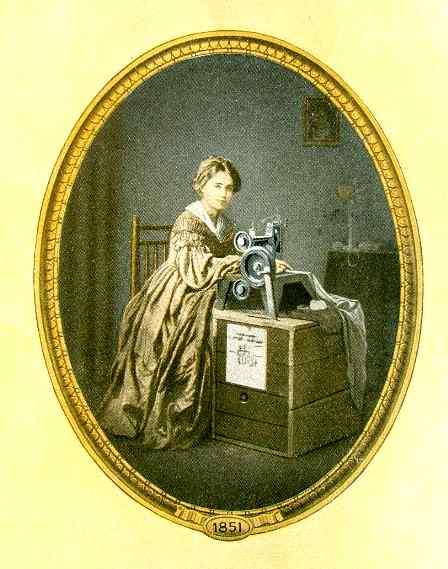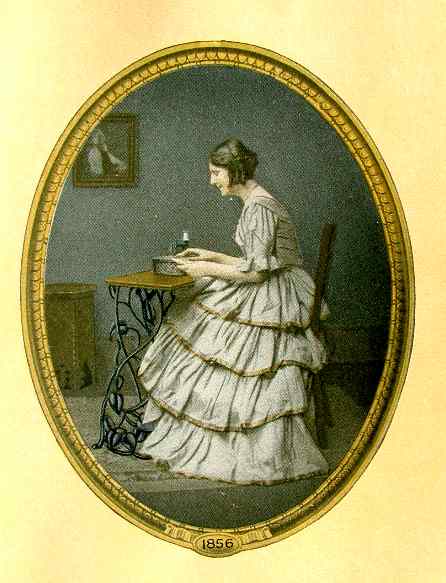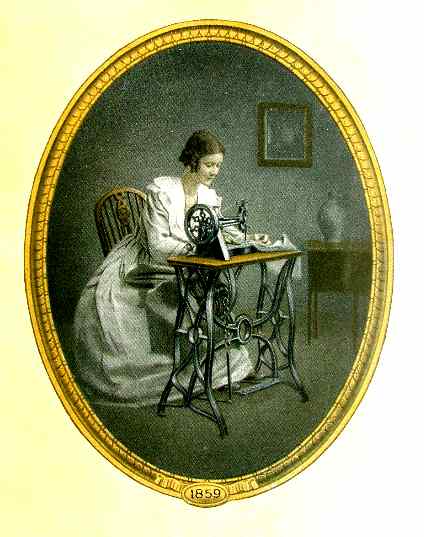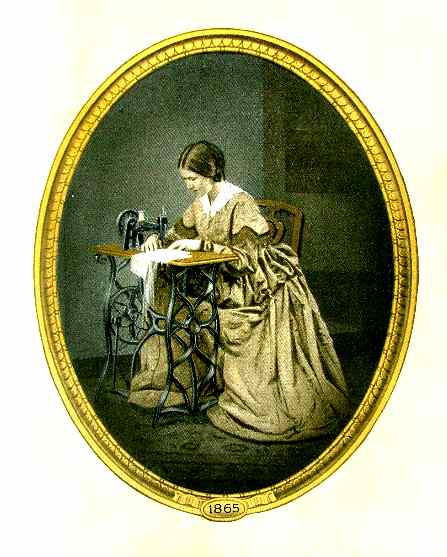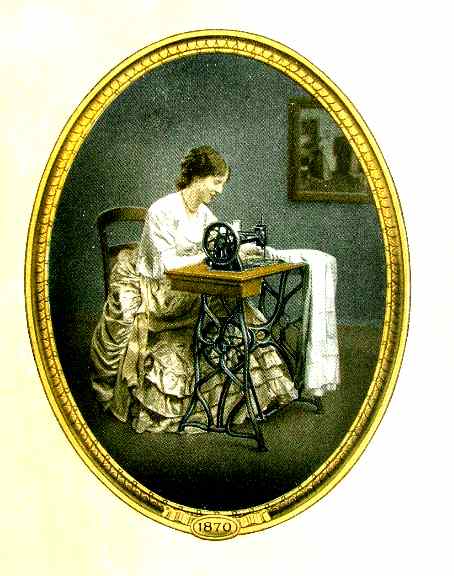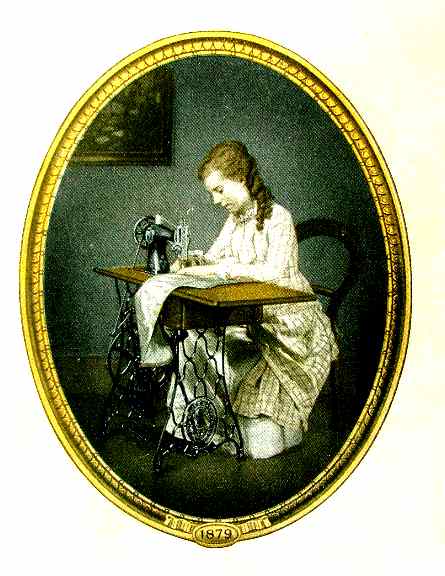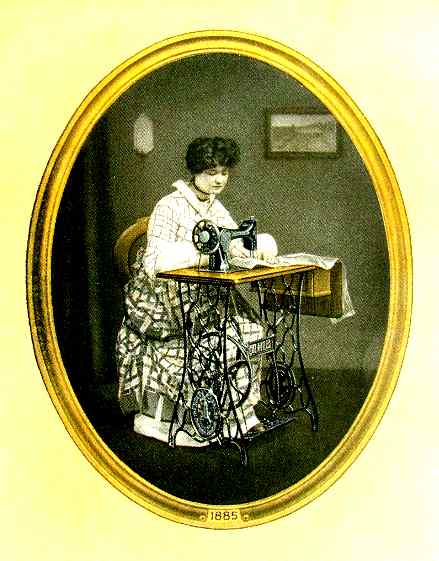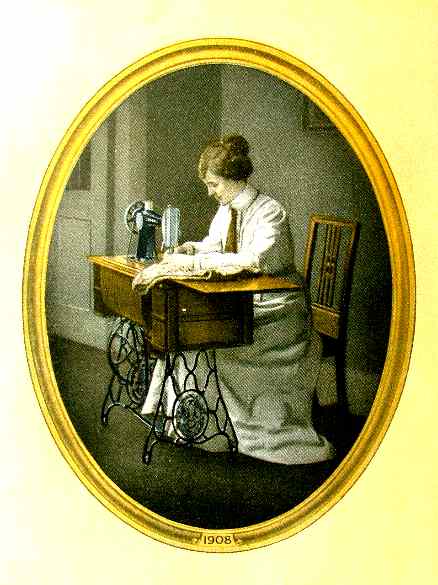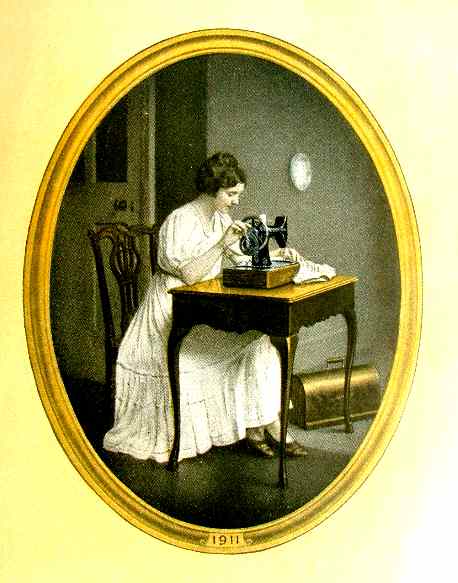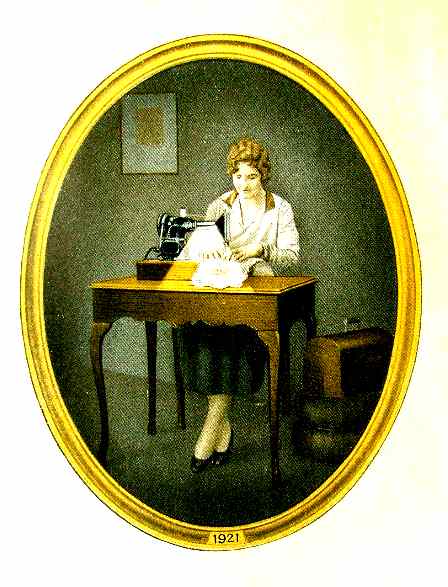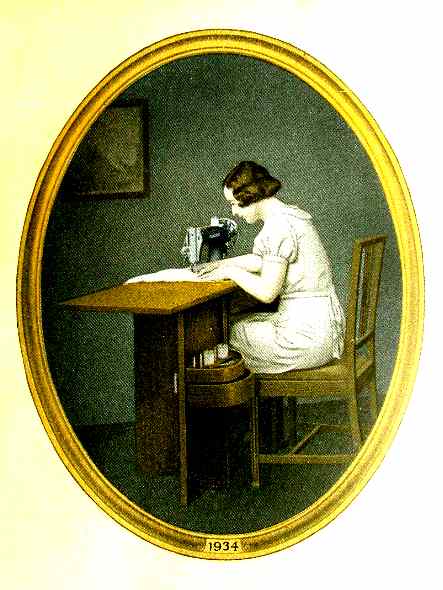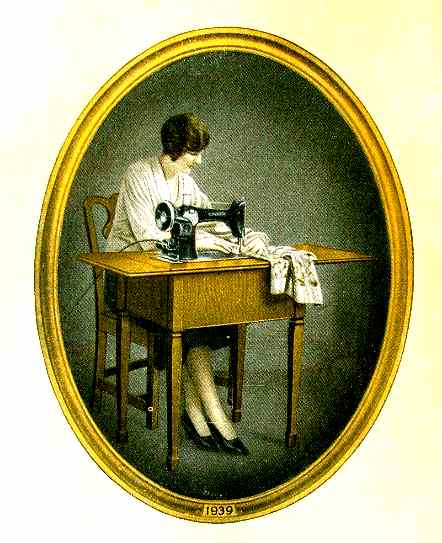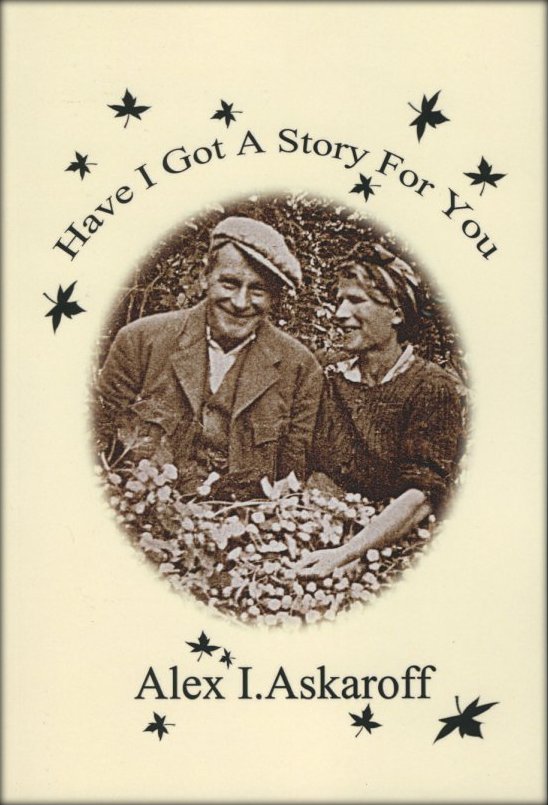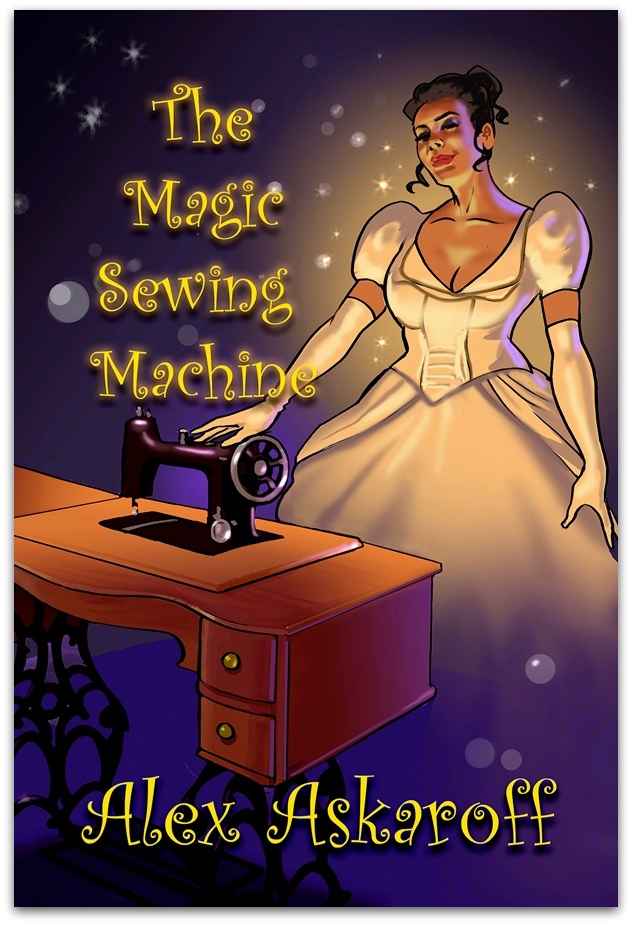|
||||
|
|
Alex has spent a lifetime in the sewing industry and is considered one of the foremost experts of pioneering machines and their inventors. He has written extensively for trade magazines, radio, television, books and publications world wide.
Most of us know the name Singer but few are aware of his amazing life story, his rags to riches journey from a little runaway to one of the richest men of his age. The story of Isaac Merritt Singer will blow your mind, his wives and lovers his castles and palaces all built on the back of one of the greatest inventions of the 19th century. For the first time the most complete story of a forgotten giant is brought to you by Alex Askaroff.
Singer Sewing Machines
In 1951 Singer's celebrated 100 years in the sewing business by producing a special badge. For 12 months they put it on all their singer sewing machines. It is unique and I thought it may be a good idea to give you a potted history of Singer's most popular models for the first 100 years. It will help many schools and people who just want a brief history of the manufacturing giant. However if you would like to read about the amazing man himself... The life of a giant, Isaac Singer In Singer's heyday there was hardly a place on earth that did not sell or make Singer machines. the name Singer was the best known name on the entire planet and even today his name is synonymous with the sewing machine.
Now, if you want to read all about the amazing life of Isaac Singer then pop over to my Singer page and have a real treat. For the first century Singer machines developed at a slow almost predictable pace and one model followed another starting from Singers patent model of 1851. As one model became obsolete it would be replaced. Singer's models went in numbers so a model 12 was followed by a 13 and so on. In the first 100 years there were only around 200 different models but from the 1950's to the Naughties there were thousands! From the 1950's, due to a massive leap in technology, brought on by the Second World War, and world trade markets opening like never before, Singer models went ballistic. It was hard to keep up with the changes. Therefore I am going to concentrate on Singer's first best-sellers. We are going to miss out quite a few industrial, poor sellers, prototypes and less well know models and give you a potted history of there best and biggest. Now all owners of the superb Singer 221's & 222's don't get in a huff although they were around from the 1930's they really did not come into there own until after my century. So here we go let's have some fun... 1851 Isaac Singer's first patent model sewing machine Rumour persists that this was one of Singer's many mistresses.
Although Singer's first machine was heavy, slow and tricky to operate it was truly the first proper sewing machine in the world capable of continuous and reliable sewing. Treadle stands were unknown in the 1850's and although Singer had invented this portable treadle-come packing case he missed his opportunity to patent it, silly boy. They say it was this model that freed womankind from much of the daily drudgery of sewing.
1856 Singers Turtle-Back lightweight sewing machine not a good sewer.
Isaac's first machine was big and heavy. He quickly got to work on a lightweight machine that proved a disaster and was driven by a flat leather belt that was always slipping. Singer needed a really good machine to stay ahead of his competitors so he went back to his original design and just made it a little lighter. 1859 The Singer model A sewing machine
The Singer Model A put Isaac back in the lead as the best machine on the market. Bevel gears and a good working space were big advantages for the machinist. However early cast bevel gears were prone to wear and so problems were on the horizon. Also the machine was still way too big and bulky. Isaac got to work on his next machine and the one that would make him a millionaire and eventually one of the richest men in the world. 1865 Singer's New Family Machine or fiddlebase
Singers New Family machine of 1865 was a revelation. Small, pretty and super efficient. It used a transverse shuttle to make an excellent stitch on just about any fabric. Also it would sew with almost any thread and used a round leather non-slip belt. All his innovations left the competitors standing. Singer went on to decorate his best seller in many different forms some really lavish and quite beautiful. The New Family machine also became known as the Fiddlebase due to the fiddle-shape of the bed. 1870 Singer's Medium Model Machine model 13
!870 saw Singer's introduction of his larger Medium Model. It never really caught on due to its weight but nonetheless many still survive. There was no doubting the quality of the model. It was popular with people who handled heavier work due to the extra room under the arm of the machine. Note: Singer's were still not advertising the company name on the treadle. 1879 Singer's Improved Family model 15k
Poor old Isaac had popped his clogs in 1874 so he did not live to see the launch of his finest model. The model 15 was the longest manufactured machine in history and is still made in some Indian & Chinese provinces today. The model 15 was just about perfect. It would sew anything from silk to canvas without complaining. It was the dawn of a new era in sewing machines. It's round bobbin and oscillating shuttle mechanism allowed it to work faster and quieter than ever. Also this was Singer's first model where they had eliminated all gears using crankshaft and con rod mechanisms long before cars. the needles used on this model are the same as we use today, like the shark the needle had evolved to perfection. See a Singer 15 sewing through a steel bean can! 1885 Singer's 27&28 sewing machine models 1885 saw Singer's launch two super little machines. designed purely for the home use and the average family. Both models utilised a vibrating shuttle that became fondly called the boat or bullet shuttle. The 27 & 28 lasted for decades with minor changes eventually becoming the 127&128 models. See Alex Askaroff talking about the Singer 17-18 on Youtube 1908 Singer's super 66 model
When Singers brought out the model 66 it established them once again as the best in the business. A few years earlier they had bought and closed down the massive Wheeler & Wilson Company who had a very successful high-arm model (No9). Singer's ability to use this knowledge proved brilliant. The 66 went on to become a favourite amongst many sewers of the day. Some were elaborately decorated with Egyptian designs which were popular at the time culminating some years later in 1924 with Howard Carter's amazing discovery of Tutankhamen. The 66 had a fully enclosed needlebar, round bobbin and a horizontal oscillating hook. Many modern machines still follow this principle. It was a new machine for a new century.
1911 Singer's model 99
The model 99 was almost perfection in a sewing machine. Small pretty and able to sew just about anything that you could squeeze under the foot. the 99 was just a smaller version of Singer's best-selling 66. I still believe that no machine made could improve on the stitch quality of the little 99. Anyone who cold afford this little beauty bought one, even if it was on the never-never over many years. 1921Singer's model 99 now with electricity
The 1914-19 war stopped all sewing machine evolution as the great sewing machine factories around the world helped the war effort. Many of the factories geared up and made armaments for both sides including Singer's in Killbowie, Scotland where they made machine guns and 20 million bullets a week! After the Great War, advances in technology made it possible to offer Singer's models as either hand, treadle or electric. The electric motors cost £5 in 1921. The average wage was still under a-pound-a-week so a motor would have been over a months wages! Oh, and now you can see what you are sewing without candlelight with a super bolt-on electric light.
1934 Singer's improved model 15
Notice how the lovely early cast-iron treadles have slowly given way, firstly to elegant wooden then chunky 30's style boxes, such a shame. The model 15 was hard to beat so they simply improved it making it even smoother and quieter eventually adding a reverse in the 1950's. what luxury! 1939 Singer's model 201
Singer's 201k was undoubtedly the pinnacle of Singer's quality machines. The 201 had arrived on the scene after nearly a century of evolution. It had the very best features of all Singer's models and a price-tag to match. It was their most expensive machine. There has never been a better Singer or perhaps a better sewing machine ever made than the 201k. She now has her own page, singer 201 sewing machine. The 201has gone down in history as Singer's finest model. Although technology has moved on, quality has not. The model 201 simply represents the very best that Singer's could make and was built to last a lifetime. Even today many professional sewers seek out this elusive model as no new machine can come close to this beauty for reliability and stitch quality. I remember a story about a woman walking into a shop in post war Britain. "I would like a Singer." The Singer man just shrugged and said "Wouldn't we all madam, wouldn't we all." In reality times were so hard and material so scarce that they would be put on a waiting list and be notified when one was ready. Some people would wait months for a new machine. A little bit different to today eh! Well that's it folks a brief introduction to the first century of Singer's. After the model 201 things went bananas with hundreds then thousands of new models coming from factories all over the globe. Now you can buy a sewing machine that almost makes the tea for you and will do a multitude of stitches, walk the dog and bath the kids. It is a different world but one where sadly quality often gets left behind. Well I hope you enjoyed our little trip down Singer's memory lane. If you would like to learn a little about the giant who caused all this read on...
|
|||
|
Most of us know the name Singer but few are aware of his amazing life story, his rags to riches journey from a little runaway to one of the richest men of his age. The story of Isaac Merritt Singer will blow your mind, his wives and lovers his castles and palaces all built on the back of one of the greatest inventions of the 19th century. For the first time the most complete story of a forgotten giant is brought to you by Alex Askaroff. News Flash! Alex's books are now all available to download or buy as paperback on Amazon worldwide.
"This
may just be the best book I've ever read."
"My five grandchildren are
reading this book aloud to each other from my Kindle every Sunday.
The way it's written you can just imagine walking
beside him seeing the things he does. News Flash! Alex's books are now all available to download or buy as paperback on Amazon worldwide. Fancy a good free read: Ena, Wilf & The One-Armed Machinist
Mr Askaroff,
I love your sewing machine website! A neighbour recently moved into a
new house and found her shed filled with forgotten antiques, one of
which was an old treadle sewing machine stand. I love sewing and
antiques and so she gave it to me! neither one of us had any idea
what kind it was, so I turned to the Internet for help and came across
your website. It was very helpful, especially the "Singer through the
Ages" page. Thanks for doing such a great job...there isn't a finer
website for Singers than yours!
Sincerely,
Shelley M. Sebring
Alex...Your site is the best
ever. Hello Alex, I do hope you enjoyed my work. I spend countless hours researching and writing these pages and I love to hear from people so drop me a line and let me know what you thought: alexsussex@aol.com |
||||
|
|
|
|
||
|
||||
